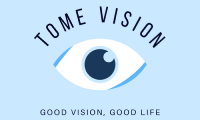The Role of Genetics in Eye Health
Introduction:
Eye health is essential for maintaining a high quality of life. Genetics, or the study of inherited traits passed down from generation to generation, plays a significant role in determining our eye health. Understanding the genetic factors involved can provide valuable insights into preventing, diagnosing, and treating various eye conditions. In this article, we will explore the two main aspects of eye health influenced by genetics and provide some helpful tips to maintain optimal eye health.
1. Genetic Conditions and Eye Diseases:
Genetic factors can contribute to the development of certain eye conditions and diseases. Some examples include:
– Age-Related Macular Degeneration (AMD): Studies have shown that genetic variants can increase the risk of developing AMD, a progressive eye disease that affects the central part of the retina. Individuals with a family history of AMD are more likely to develop this condition.
– Glaucoma: Certain genetic mutations can increase the susceptibility to glaucoma, a group of eye diseases characterized by optic nerve damage. Primary open-angle glaucoma, the most common form, has genetic components that can pass from parents to children.
– Cataracts: While most cataracts are related to aging, genetics can also play a role. Research suggests that certain gene mutations can make individuals more prone to developing cataracts at an earlier age.
2. Inherited Refractive Errors:
Refractive errors, such as nearsightedness (myopia), farsightedness (hyperopia), and astigmatism, are common eye conditions that affect vision clarity. These conditions can have a genetic basis:
– Myopia: Studies indicate that myopia development depends on both environmental factors and genetic predisposition. The likelihood of developing myopia increases when parents are myopic.
– Hyperopia: Genetics can also contribute to hyperopia, where close objects appear blurry. Individuals with a family history of hyperopia have a higher chance of being affected.
Tips for maintaining optimal eye health:
– Regular eye exams: It is crucial to have periodic eye exams conducted by an eye care professional. They can detect any potential eye conditions early on, allowing for prompt treatment or preventive measures if needed.
– Eat a balanced diet: Proper nutrition plays a significant role in eye health. Include foods rich in antioxidants, such as leafy greens, colorful fruits, and oily fish, as they have been associated with a reduced risk of certain eye conditions.
– Protect your eyes from harmful UV rays: When outdoors on sunny days, wear sunglasses that offer 100% UVA and UVB protection. Prolonged exposure to ultraviolet rays can increase the risk of cataracts and other eye conditions.
– Quit smoking: Smoking is detrimental to overall health, including eye health. The habit has been linked to an increased risk of age-related macular degeneration and cataracts. Quitting smoking can significantly benefit your eye health.
– Know your family history: Be aware of any eye conditions that run in your family. This knowledge allows for early monitoring and intervention if necessary.
Conclusion:
Genetics plays a significant role in determining our eye health. Understanding the influence of genetic factors on eye conditions and diseases can help individuals take proactive steps to maintain optimal eye health. By adopting healthy habits, such as regular eye exams, a balanced diet, protection from UV rays, and avoiding smoking, one can reduce the impact of genetic predisposition and promote lifelong eye wellness.
